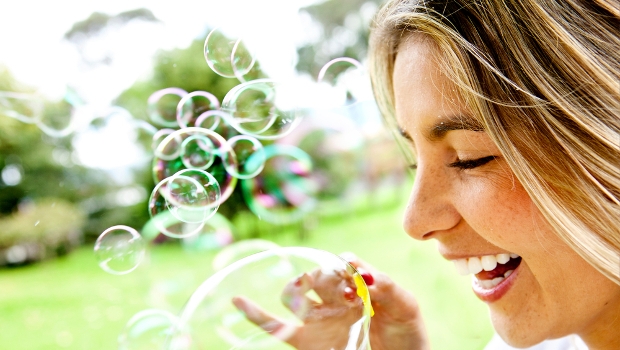
culled from:livehappy.com
If you had the choice to spend the day with someone who exudes happiness or someone who has a martyr thing going, it wouldn’t be a tough decision, right? How about your super upbeat friend vs. your chronic complainer friend? Not a challenging choice there either. Spend time with someone who exudes positivity, and you are more likely to feel positive. Hang with someone who acts like life’s number one victim, and guaranteed, Debbie downer is going to rub off on you. It’s called emotional contagion, and it means the emotions of others can influence us. So if happy people make other people happy, why is it that happy people are sometimes thought to be selfish?
“The belief that unhappiness is selfless and happiness is selfish is misguided,” says Gretchen Rubin, happiness expert and author of The Happiness Project and Happier at Home. “It's more selfless to act happy. It takes energy, generosity, and discipline to be unfailingly lighthearted, yet everyone takes the happy person for granted.” Put another way …
Happiness takes work. Happy people are taken for granted because they are thought of as naturally happy people or born happy, yet upbeat people have to work at being resilient, bouncing back, rising above, and staying positive. The outside world only sees the happy person and not the effort behind the scenes, so positive people don’t receive credit for creating their sunshine-like dispositions. “Happiness is a work ethic. You have to train your brain to be positive, just like you work out your body,” writes Shawn Achor is his book, The Happiness Advantage.
Happy people are overlooked. If happy people are thought to be in selfish pursuit of their own fulfillment and pleasure, consider that the happy person often goes unnoticed. “No one is careful of (a happy person’s) feelings or tries to keep his spirits high,” Rubin says. “Because happy people seem self-sufficient, they become a cushion for others.” The happy person is expected to lift others up.
Happiness doesn’t mean you lack empathy. Just because your smile lights up a room, doesn’t mean you are blind to the suffering going on in the world. You don’t have to sacrifice your happiness to show the world you are compassionate. “Just as eating your dinner doesn’t help starving children in India; being blue yourself doesn’t help unhappy people become happier,” Rubin says. In fact, happier people are better equipped to demonstrate their empathy and help people because their emotional tanks are full. “When I’m feeling happy, I find it easier to notice other people’s problems. I have more energy to try to take action and I have the emotional wherewithal to tackle sad or difficult issues, and I’m not as preoccupied with myself. I feel more generous and forgiving,” Rubin says. There will always be tragic stories happening in the world, but empathy is better expressed with giving back and good deeds, than giving up your happiness in a show of support.
Happy people give back. Happy people are more interested in social problems, more likely to do volunteer work and contribute to charity, according to Gallup Well-being polls. While unhappy people tend to socially withdraw and focus on themselves, happy people turn outward and are more available to help others. And when people give back it only enhances their happiness, says Harvey McKinnon, a nonprofit fundraising expert and author of The Power of Giving: How Giving Back Enriches Us All. “People are hard-wired to give, and when people give to others, it makes them feel better.” Turns out, one of the best ways to get happy in the first place is to do a selfless act—help other people be happy. Rubin calls it a splendid truth: “The best way to make yourself happy is to make others happy, and the best ways to make other people happy, is to be happy yourself.”
So if anyone tries to rain on your happy parade by telling you that your investment in your happiness is a selfish pursuit, just say, “I am doing this for you,” because really, you are.
 RSS Feed
RSS Feed Twitter
Twitter

 10:09
10:09
 Executive Republic
Executive Republic
 Posted in
Posted in
0 comments:
Post a Comment